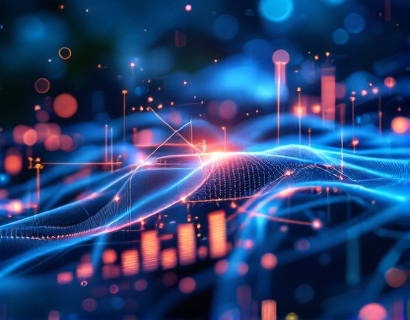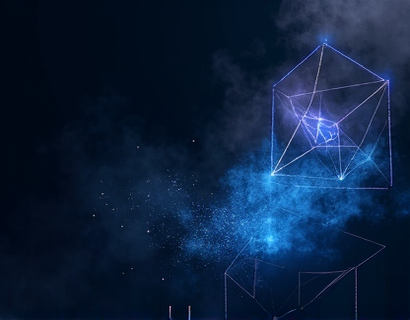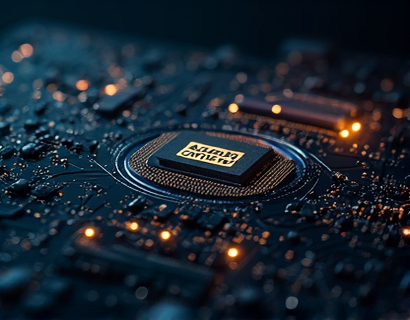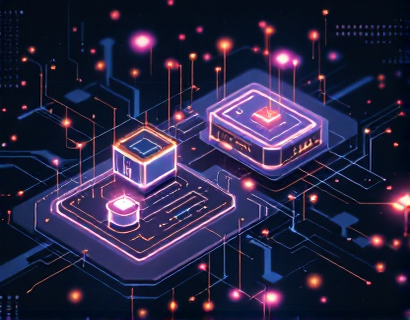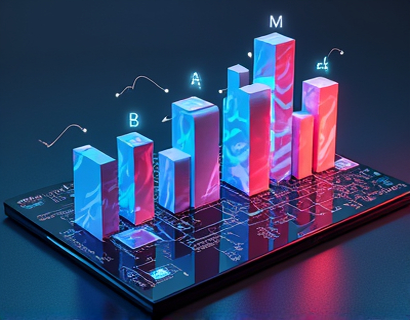Blockchain Oracle Management: Streamlining Data Integration and Enhancing Smart Contracts for Decentralized Applications
In the rapidly evolving landscape of blockchain technology, the role of oracles emerges as a critical component for connecting decentralized applications (DApps) with external data sources. Oracles serve as bridges, providing real-time data and enabling smart contracts to interact with the off-chain world. However, managing these oracles efficiently remains a challenge for developers and businesses aiming to harness the full potential of blockchain. This article delves into transformative software solutions that revolutionize oracle management, focusing on streamlining data integration and enhancing smart contract capabilities. By optimizing these processes, the platform ensures secure and reliable interactions within DApps, unlocking the full potential of blockchain technology through advanced management and seamless service access.
Understanding Oracle Management in Blockchain
Oracle management in blockchain involves the process of integrating external data into smart contracts. These external data sources can include APIs, databases, IoT devices, and more. The primary function of an oracle is to fetch data from these sources and relay it back to the blockchain, allowing smart contracts to make informed decisions based on real-world conditions. However, this process is fraught with challenges such as data latency, security risks, and the need for high reliability. Effective oracle management addresses these issues by providing robust mechanisms for data validation, secure communication, and efficient data handling.
Challenges in Traditional Oracle Management
Traditional oracle solutions often struggle with several key issues. Data latency is a significant concern, as delays in data retrieval can render smart contracts ineffective in time-sensitive applications. For instance, in decentralized finance (DeFi) platforms, delayed data can lead to missed opportunities or incorrect transaction executions. Security is another paramount issue, as oracles act as single points of failure. If compromised, they can introduce vulnerabilities that jeopardize the entire DApp. Additionally, the lack of standardization in oracle protocols makes integration complex and costly for developers. These challenges necessitate innovative solutions that can streamline data integration and enhance the overall reliability of smart contracts.
Transformative Software Solutions for Oracle Management
To address the aforementioned challenges, advanced software solutions have emerged, focusing on optimizing oracle management and enhancing smart contract functionality. These solutions leverage cutting-edge technologies such as machine learning, distributed systems, and cryptographic protocols to create a more robust and efficient oracle ecosystem. By integrating these technologies, the platform offers a comprehensive approach to managing oracles, ensuring that data is accurate, timely, and secure.
Real-Time Data Integration
One of the core features of these transformative solutions is real-time data integration. By utilizing a network of decentralized nodes, the platform can aggregate data from multiple sources simultaneously, reducing latency and ensuring that smart contracts have access to the most up-to-date information. This decentralized approach not only enhances speed but also increases resilience, as the system is less vulnerable to single points of failure. For example, in a supply chain management DApp, real-time data on inventory levels and shipping statuses can be seamlessly integrated, enabling automated contract executions and improving operational efficiency.
Enhanced Security Measures
Security is a top priority in oracle management, and the proposed solutions incorporate advanced cryptographic techniques to safeguard data integrity and authenticity. Each data point fetched from external sources is verified through a multi-signature process, ensuring that only valid and trusted data is fed into the smart contracts. Additionally, the platform employs blockchain-based consensus mechanisms to validate the data, further minimizing the risk of tampering or fraud. This multi-layered security approach provides developers with confidence that their DApps are protected against potential threats.
Standardization and Interoperability
To simplify integration and reduce costs, the platform promotes standardization in oracle protocols. By adhering to industry-accepted standards, developers can easily integrate oracles from different providers without the need for extensive customization. This interoperability not only streamlines the development process but also fosters a more vibrant ecosystem where various solutions can work together seamlessly. For instance, a developer can integrate oracles from multiple providers to fetch diverse data types, such as weather data, cryptocurrency prices, and sensor readings, all within the same DApp.
Benefits of Advanced Oracle Management
The implementation of these advanced oracle management solutions brings numerous benefits to developers and businesses. Firstly, the reduction in data latency ensures that smart contracts can respond promptly to external events, making DApps more responsive and user-friendly. This is particularly crucial in applications like decentralized gaming, where real-time data can significantly enhance user experience. Secondly, the enhanced security measures provide a higher level of trust and reliability, attracting more users and stakeholders to the ecosystem. Lastly, the standardization and interoperability features lower the barrier to entry for developers, enabling them to focus on innovation rather than the complexities of oracle integration.
Use Cases and Applications
The versatility of these oracle management solutions makes them applicable across a wide range of industries and use cases. In the financial sector, DApps can leverage real-time market data to execute trades automatically, improving efficiency and reducing human error. In the IoT domain, devices can feed sensor data into smart contracts, enabling automated responses to environmental changes or equipment statuses. In the healthcare sector, patient data can be securely and efficiently integrated into DApps, facilitating decentralized health records and personalized medicine. These applications demonstrate the transformative potential of advanced oracle management in driving innovation and efficiency.
Implementing Oracle Management Solutions
For developers and businesses looking to implement these oracle management solutions, the process is straightforward and designed to be user-friendly. The platform provides a comprehensive suite of tools and APIs that can be easily integrated into existing DApps. Here’s a step-by-step guide to getting started:
- Assess Requirements: Identify the specific data sources and smart contract functionalities needed for your DApp.
- Choose Oracles: Select the appropriate oracles from the platform’s network, considering factors such as data type, update frequency, and security features.
- Integrate APIs: Use the provided APIs to connect your smart contracts with the chosen oracles. The platform offers detailed documentation and code snippets to facilitate this process.
- Test and Deploy: Conduct thorough testing to ensure data accuracy and security. Once validated, deploy the smart contracts to the blockchain.
- Monitor and Maintain: Continuously monitor the oracle performance and update the integration as needed to adapt to changing requirements or new data sources.
By following these steps, developers can seamlessly integrate advanced oracle management into their DApps, unlocking new possibilities and enhancing user experiences.
Future Trends in Oracle Management
As blockchain technology continues to mature, the field of oracle management is expected to evolve further. One notable trend is the integration of artificial intelligence and machine learning to predict and preprocess data, reducing the load on smart contracts and improving response times. Additionally, the rise of cross-chain interoperability will enable oracles to fetch data from multiple blockchains, creating a more unified and efficient ecosystem. These advancements will not only enhance the capabilities of existing solutions but also open up new opportunities for innovation in decentralized applications.
Conclusion
In conclusion, the management of oracles is a critical aspect of building robust and reliable decentralized applications. By addressing the challenges of data latency, security, and standardization, advanced software solutions are transforming the oracle landscape. These solutions not only streamline data integration but also enhance the overall functionality of smart contracts, paving the way for more sophisticated and user-friendly DApps. As the blockchain ecosystem continues to grow, the importance of efficient oracle management will only increase, making it an essential focus area for developers and businesses alike.







